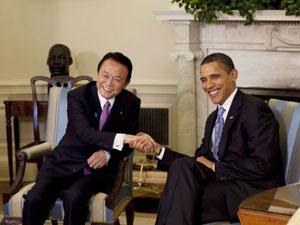How the midterms could change foreign policy
This story was originally reported by PRI’s The World. For more, listen to the audio above.
Much of the talk on the election trail in 2010 has been about domestic issues. Jobs, the economy and health care have dominated much of the public discourse. That may be because the leadership of both parties agree on some of the most pressing issues in American foreign policy today.
“We’re in a slightly unusual position here, where actually the President’s position on Afghanistan is closer to the position of the Republican Party than it is with his own Democratic base, which is quite disenchanted with his policy,” Duke political science professor Christopher Gelpi told PRI’s The World. If Republicans take over the House of Representatives, as many pollsters are predicting, “that may actually relieve some pressure on the President to get out of Afghanistan, at least in the short term.”
In the long term, however, divisions are likely to emerge. If the situation doesn’t improve Gelpi points out that Obama’s Democratic base “will be pushing very strongly for withdrawal from Afghanistan.” If he ends up pulling out, the Democrats risk becoming “very vulnerable to Republican critique for failing, for giving up.”
Some believe the midterm elections have already had an effect on politics. “Politics is much like markets,” James Lindsay of the Council on Foreign Relations told The World, “people react not just to what has happened, but to anticipation of what’s happened.” For months, pundits have been predicting a large loss for Democrats in this election. Lindsay says that is likely the reason why initiatives like climate change legislation, immigration reform and even the Strategic Arms Reduction Treaty (START) have stalled out.
One large question that won’t be answered on election night is how the Tea Party will affect foreign policy. Tea Party candidates have focused almost exclusively on domestic politics on the campaign trail, but will likely have to start dealing with foreign policy if they take power. “The Tea Party itself is sort of inchoate on the question of what they’re for in foreign policy,” according to Lindsay. Meaning that even after Tuesday, there’s still a lot that people won’t know.
PRI’s “The World” is a one-hour, weekday radio news magazine offering a mix of news, features, interviews, and music from around the globe. “The World” is a co-production of the BBC World Service, PRI and WGBH Boston.
